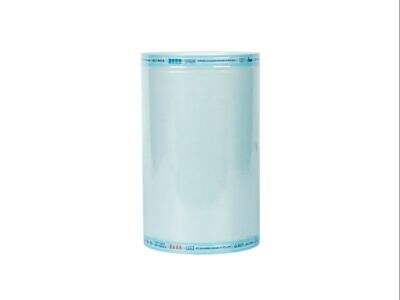Imagine you're going to the doctor, and they need to use a special tool to make sure your ears are working. Would you like that tool to be clean and not germy? Of course, you would. This is where sterility comes in: a guarantee that medical tools and supplies are devoid of harmful germs. It is like a protective shield that protects us from falling sick. But how do we ensure sterilization persists? One is using special rolls that shield them.
The Importance of Sterility in Healthcare
However, sterility is key in health care. When doctors use tools or equipment on patients, they must clean so that there are no harmful bacteria that could infect them. That is where medical packaging comes into play. Medical supplies such as bandages, gloves, and syringes are usually kept this way to ensure they remain safe and clean. They use special rolls that have certain properties to keep germs out. Think of it like a magical force field that keeps your favourite toys free from dirt. That’s sort of what these properties do for medical supplies.
Understanding Barrier Properties and Their Role in Hygiene
Barrier properties are the superheroes of medical packaging. They yield powers which protect our medical supplies from bacteria and other nasty elements. These properties may be water-resistant, light-proof, and the solution does not form holes. Consider them an invisible force field that protects our medical equipment. Without these barrier properties, our medical supplies would be vulnerable to becoming contaminated, making us quite ill. That’s why it’s so important for rolls to possess strong barrier properties to make it sterile.
How Rolls May Protect Medical Supplies
Rolls protect medical supplies like bodyguards. They wear bandages, gloves, and other tools to protect themselves from germs. Similar to the way a knight protects themselves by putting on armor, rolls provide us protection of our medical technology treasures. That way, when patient supplies are needed, doctors know that everything is sterile and secure. It is like a trustworthy friend that stands guard over you. This is why roll with good barrier properties are critical in health care.
Keeping Rolls Safe and Clean
Now that we realize how critical barrier properties are in rolls, what do we do to ensure they perform well? Just like everything else, proper storage and handling all play into the key. Similar to having a toy box to store toys, to protect it from dust, the rolls of medical should also be kept with care inside not just a box but a clean and dry area. This helps maintain their barrier properties and keeps them clean. Rolls also need to be handled carefully by healthcare workers to avoid damage. These steps help us to ensure our medical supplies remain clean and safe for use.
Barrier Property Importance for Safety
Barrier properties are vital for maintaining the integrity of medical products. In rolls that feature robust barrier properties retaining medical supplies, it gives the impression to the healthcare professionals that the tools used on the patients are clean. This prevents patients from being infected, but also ensures that medical procedures are more effective. If you can tie this in your mind, imagine constructing a sandcastle with a shovel that has been broken – it simply would not work. Medical products without proper barrier properties may not benefit patients as much either. That’s why it’s important to make investments in high-quality rolls with strong barrier properties.

